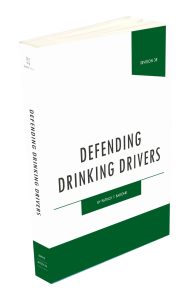Search
Michigan DUI Case Based on Anonymous 911 Call Dismissed
In the case of People v. Pagano, the Michigan Supreme Court has indicated that a traffic stop based only on an anonymous 911 call is invalid. This ruling affirmed the District Court’s dismissal of both the child endangerment drunk driving and open intoxicants in a motor vehicle charges.
As the Pagano opinion indicates, the police received information from central dispatch that a woman was obnoxious and yelling at her children and appeared to be intoxicated. The 911 caller also provided identifying information about the vehicle driven by the ostensibly intoxicated woman, including the license plate number and make and model of the car.
The Michigan Supreme Court, in the unanimous Pagano opinion, held that information provided to and by the officer failed to establish a “reasonable and articulable suspicion” either that a traffic violation had occurred or that criminal activity was afoot. While the Court acknowledged that the 911 caller was able to appropriately identify the individual involved and the car being driven by her, the tip still did not give rise to anything more than, at best, an “inchoate or unparticularized suspicion” of criminal activity. Otherwise, there was nothing in the record to suggest that the police officer making the traffic stop corroborated the 911 caller’s mere assertion that the driver was drunk. There was no bad driving observed by the police officer, and the stop was based only on the information provided to the 911 caller. After all, said the Court, parents can obnoxiously yell at their children without being drunk, and the 911 called also did not indicate that any bad driving was observed.
 Michigan Criminal Defense Lawyer Blog
Michigan Criminal Defense Lawyer Blog


 Beating a breathalyzer is all about technique, and this method might work regardless of the amount of alcohol in your system. It’s based on the theory of breath testing, and knowing about breathing patterns. And this technique for beating a breath test reveals a little secret about just how bad breathalyzers really are a measuring blood alcohol content (BAC) levels. This technique will work with any breath testing instrument, including the
Beating a breathalyzer is all about technique, and this method might work regardless of the amount of alcohol in your system. It’s based on the theory of breath testing, and knowing about breathing patterns. And this technique for beating a breath test reveals a little secret about just how bad breathalyzers really are a measuring blood alcohol content (BAC) levels. This technique will work with any breath testing instrument, including the 
 If you’ve been arrested for operating a vehicle while intoxicated,
If you’ve been arrested for operating a vehicle while intoxicated,